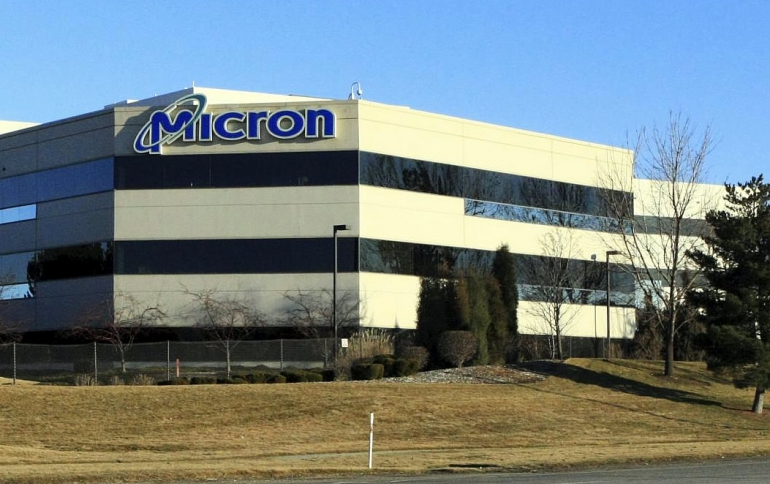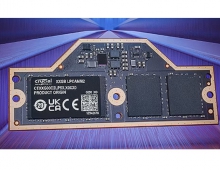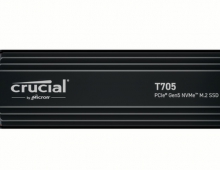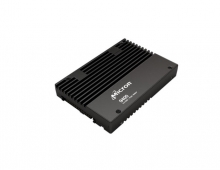
Micron Announces New $100 Million Venture Investment in AI
Micron Technology, Inc. announced that it will invest up to $100 million in startups with a strong focus on AI and machine learning through its strategic investments entity, Micron Ventures.
The announcement was made at the inaugural Micron Insight 2018 event in San Francisco.
"We are pleased to bring together the industry's brightest thinkers, researchers, innovators and technologists to discuss AI, machine learning and deep learning," said Micron President and CEO Sanjay Mehrotra. "These trends are at the heart of the biggest opportunities in front of us, and increasingly require memory and storage technologies to turn vast amounts of data into insights that accelerate intelligence."
Micron xecutives made the case that the rise of deep learning will help drive demand for memory and storage. Its new fund aims to help it ride the wave with future investments in hardware, software and services.
Micron Ventures is dedicated to helping entrepreneurs revolutionize industries with advances in AI for applications such as augmented and virtual reality and autonomous driving, while advancing foundational capabilities such as deep learning. As part of the $100 million investment, Micron will target up to $20 million to fund startups led by women and other underrepresented groups.
$1 Million Grant to Advance Curiosity in Artificial Intelligence
The Micron Foundation also announced a $1 million grant for universities and nonprofit organizations to conduct research into how artificial intelligence (AI) can improve lives while ensuring safety, security and privacy.
The $1 million fund is available to select research universities focused on the future implications of AI in life, healthcare and business, with a portion specifically allocated to support women and underrepresented groups. The Micron Foundation supports researchers tackling some of AI's greatest challenges - from building highly reliable software and hardware programs to finding solutions that address the business and consumer impacts of AI.
Micron also awarded a total of $500,000 to three initial recipients at Micron Insight 2018.
AI4All, a nonprofit organization, works to increase diversity and inclusion in AI education, research, development and policy. AI4All supports the next generation of diverse AI talent through its AI Summer Camp. Open to 9th-11th grade students, the camp gives special consideration to young women, underrepresented groups and families of lower socioeconomic status.
Berkeley Artificial Intelligence Research (BAIR) Lab supports researchers and graduate students developing fundamental advances in computer vision, machine learning, natural-language processing, planning and robotics. BAIR is based at UC Berkeley's College of Engineering.
Memory plans
At teh event, Micron's chief executive Sanjay Mehrotra, former CEO and co-founder of SanDisk, vowed to accelerate new product introductions, in a challenging time for the memory and storage giant, which trails larger rivals Samsung, SK Hynix and Toshiba. Breakout products such as the Hybrid Memory Cube and Automata processor failed to gain significant traction and 3DXPoint memories co-designed with Intel hit delays with revenues for Micron now pushed out to 2020.
On the positive side, the company hopes to sample 3DXPoint devices late next year. It will also enter the market for high-bandwidth memory stacks, initially with HBM2 in 2019.
In its core business, Micron has a DRAM-like product in the lab it aims to sample in 2021. It has a process technology roadmap with three new nodes ramping into production. In addition, it is privately showing customers software to accelerate NAND storage performance 3-5x.
Micron's DRAM roadmap does not require extreme ultraviolet lithography and is already using double- and quad-patterning. The company is already shipping DRAMs made in its sub-20nm 1x process and expects first revenue for some made in its 1y process next quarter. The transition to 16Gbit chips from today's mainstream 8Gbit designs is near, but he would not comment on the viability of a 32G design.
Micron researchers are also exploring the kinds of processor-on-memory architectures startups such as Mythic and Syntiant hope to pioneer. They are also bullish on so-called neuromorphic chips that use a mesh of synapse-like cores that companies such as BrainChip are pursuing.
The company expects to use 3DXPoint in both dense, fast main memory products and storage that delivers lower latency than Intel's current Optane drives. Micron's stated plan of sampling in late 2019 for revenues in 2020 suggests it is waiting for a second-generation 3DXPoint device it is co-developing with Intel.





















